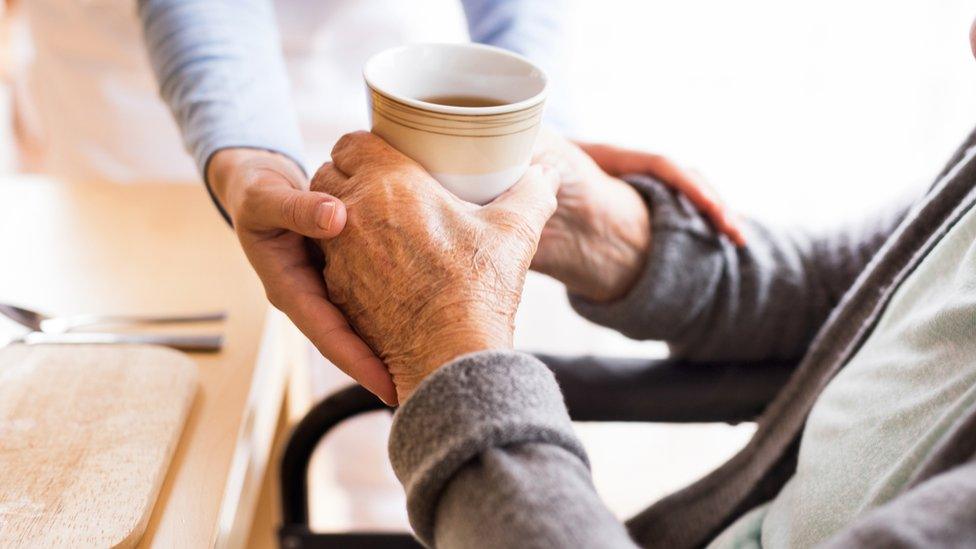Milton Keynes Council: Man 'struggled to feed himself after care cut'
- Published
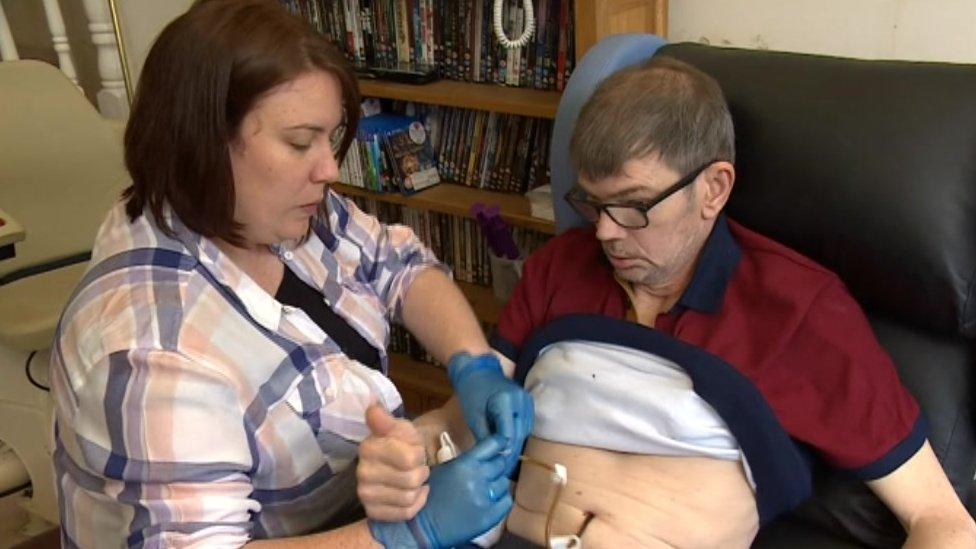
Roy Baker now receives care funded by the NHS
A man with Huntington's disease was treated "worse than an animal" after his care package was cut by a council, his family has said.
Milton Keynes Council cut Roy Baker's care from 35 to 23.5 hours a week after an officer said the authority no longer funded "shopping and domestic support".
However, an investigation by the Local Government and Social Care Ombudsman found the council was "at fault".
The authority has apologised for its "mistake".
Huntington's Disease is a rare inherited disorder that damages certain nerve cells in the brain. Symptoms can include involuntary movements, personality changes and altered behaviour.
When Mr Baker's care and support needs were reviewed by the council in April 2017 it was noted he was "unable to get drinks and food on bad days" and needed help "managing and maintaining nutrition".
However, an assessment officer told Mr Baker his direct payments would be reduced because the council "no longer funded shopping, domestic and meal preparation".
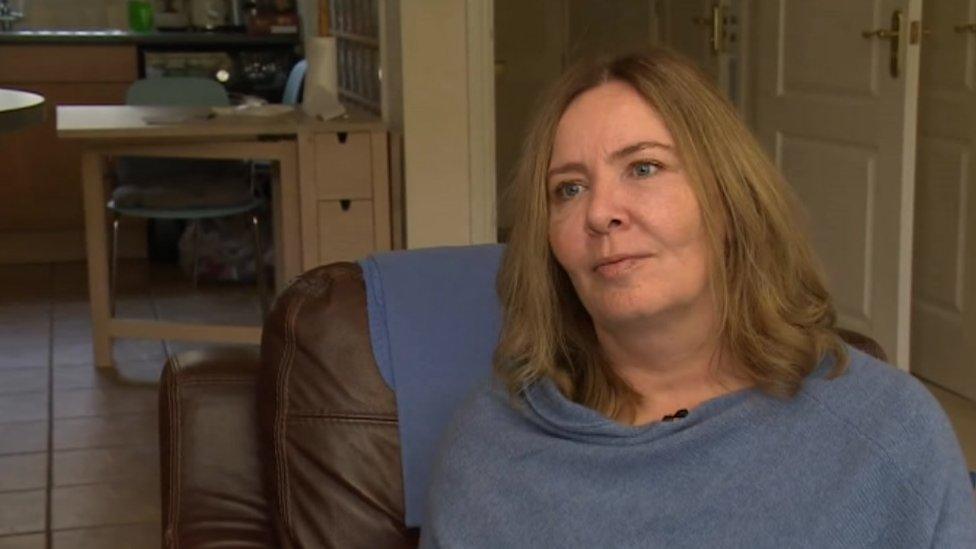
Sarah Baker complained to the ombudsman after seeing the affect the cut was having on her ex-husband
The ombudsman said the cut meant Mr Baker's care package "was not sufficient" - he lost help for basic needs such as showering and eating - and both he and his ex-wife Sarah suffered "significant injustice" as a result.
Ms Baker said: "Our two boys were affected. They would worry what condition they'd find their father in."
During one week when his care was cut, Mr Baker allegedly only ate one meal while his carer was on holiday.
"I actually said to the council, the week the carer was off that they wouldn't treat an animal the way he has been taken care of by Milton Keynes Council," Ms Baker said.
The authority reassessed Mr Baker in January and increased his care package to 52.5 hours a week.
However, the ombudsman concluded the council's assessments were "inadequate" as it had not considered alternative ways to meet his needs.

Mr Baker was "angry" when his care was reduced
The authority said: "We have apologised for this mistake and are sorry to have got it wrong."
It added it had reviewed 734 service users and changed the level of support in 127 cases, mostly to increase support.
Mr Baker's care is now funded by the NHS.
- Published2 October 2019
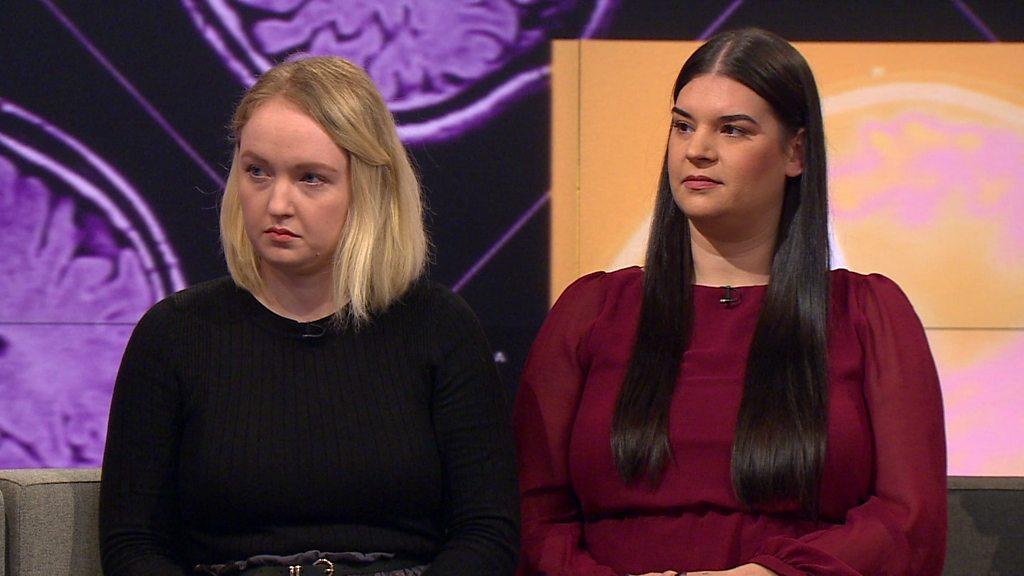
- Published14 August 2019
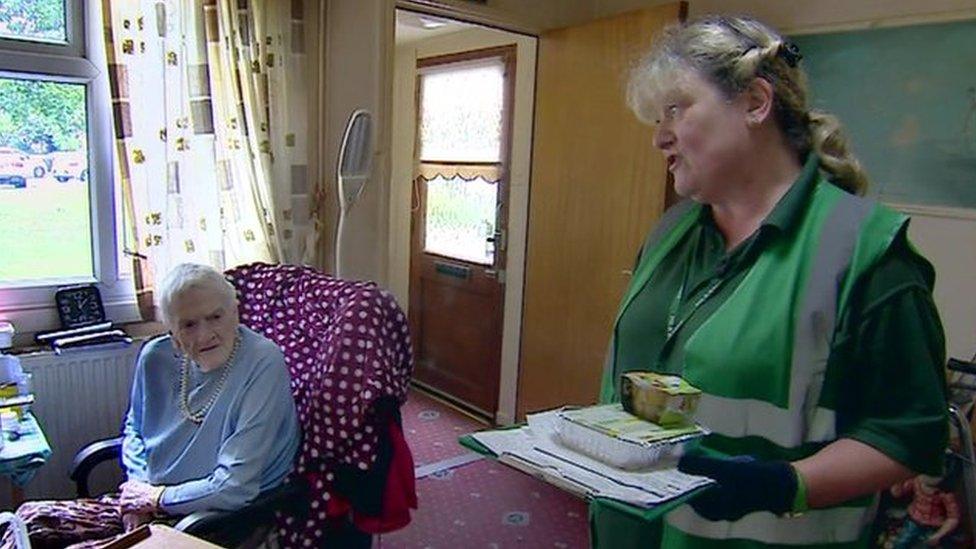
- Published13 June 2019
